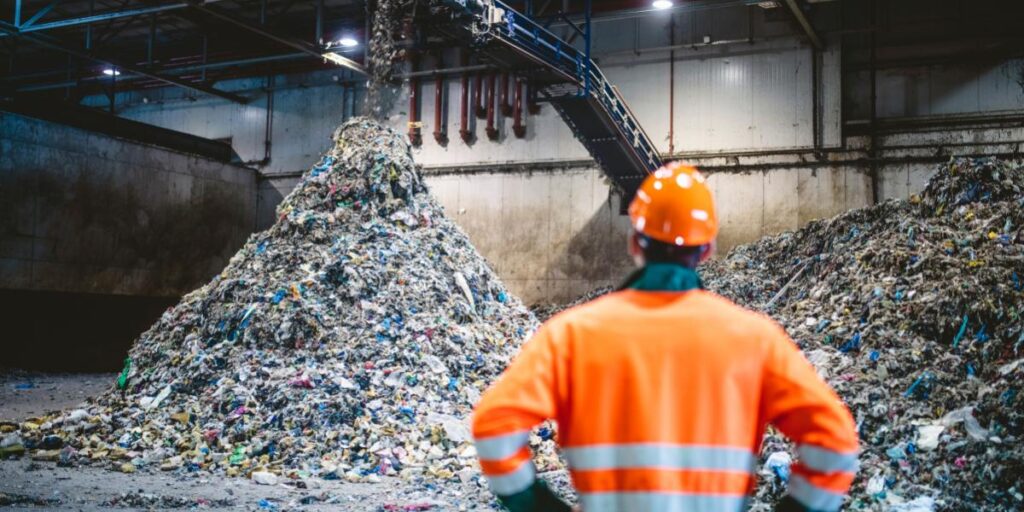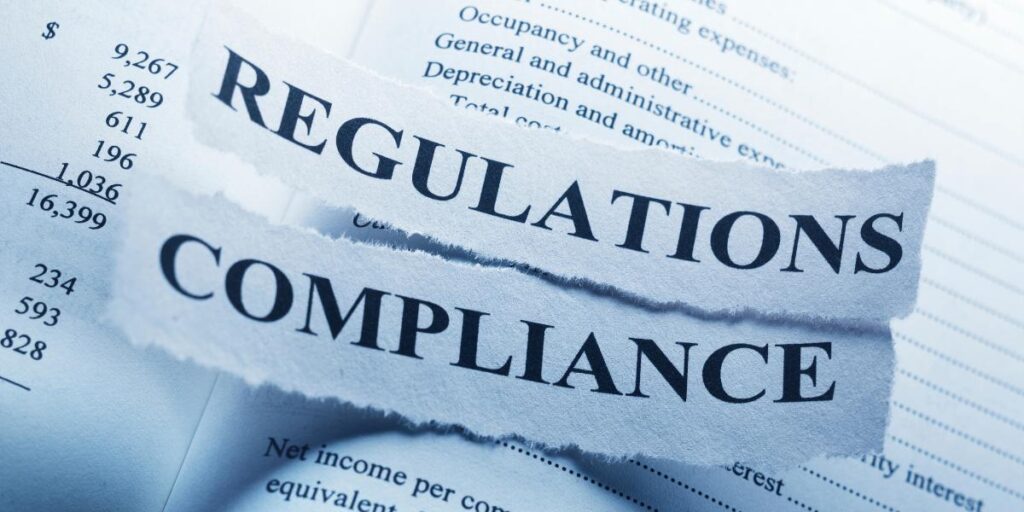The waste management industry presents a wealth of opportunities, attracting entrepreneurs eager to make a difference.
Before you jump in, it’s important to have a solid business plan that sets the stage for lasting success. Initially, creating a business plan may seem daunting, especially if you’re new to the industry.
The great news? It’s simpler than you might expect! We’re here to walk you through the key steps, helping you craft a clear and actionable plan that will position your waste management business for growth.
Understanding the Waste Management Industry
The waste management industry is more than just garbage collection—it’s about sustainability, resource optimization, and addressing global environmental challenges.
As concerns about climate change and environmental protection intensify, businesses are being held to higher standards when it comes to managing waste.
Here’s why the waste management sector is both lucrative and vital:

Global Industry Size and Importance:
The global waste management market is worth $890 billion and includes various services such as construction debris removal and commercial trash collection.
Waste management has evolved beyond basic disposal methods into a more advanced system aimed at resource recovery, reducing environmental harm, and promoting recycling and reuse.
Innovative strategies like waste-to-energy conversion and composting are gaining traction, creating new revenue opportunities while delivering environmental advantages.
Environmental Impact:
Inadequate waste disposal is responsible for significant environmental damage.
From water pollution to air quality degradation, poor waste management practices contribute to global ecological problems. On the other hand, a well-managed waste system can mitigate these risks.
Proper sorting, recycling, and disposal reduce landfill use, conserve natural resources, and lower greenhouse gas emissions.
Essential Components of Your Waste Management Business Plan
Creating an effective business plan involves breaking it down into clear, manageable sections. Let’s explore what your plan should include:
Executive Summary
This is the first impression of your business plan, summarizing your goals, the services you’ll provide, and the market you’re targeting. Be concise, but make it compelling—investors or stakeholders should understand the potential of your business right from the start.
Mission Statement
Your mission statement defines the purpose and direction of your waste management company. Think of it as a roadmap for where you want your business to go. Some key questions to ask when crafting your mission statement include:
- What are the core objectives of your business?
- What impact do you want to have on the environment and your customers?
- How will you differentiate yourself from competitors?
For instance, you might aim to reduce landfill waste by 20% in your region or become a leader in sustainable recycling solutions. Your mission statement should reflect your commitment to environmental stewardship, efficiency, and customer service.
Industry Overview
Dive deeper into the waste management sector. Include key industry trends, regulations, and opportunities. Focus on how your business will meet these needs, whether through innovative recycling technologies, waste-to-energy processes, or by providing better service at a lower cost than competitors.
Learn more about our commercial trash collection and residential trash collection services to see how we can assist with various waste management needs.
Environmental Regulations and Compliance
Governments across the world impose strict waste management regulations designed to protect the environment and public health. For assistance with compliance and regulatory requirements, visit our Contact page.
These regulations dictate how waste should be collected, processed, and disposed of, and failing to comply with them can result in severe penalties, including fines, legal battles, and reputational damage.
Your business plan should outline the regulatory environment you’ll be operating in and how your company will stay compliant.
Research relevant local, regional, and national regulations, and explain how your waste management strategies align with these laws. This might include:
- Permitting and licensing requirements for waste facilities.
- Adhering to disposal methods for hazardous or non-hazardous materials.
- Meeting recycling mandates and landfill diversion goals.

Market Research and Analysis
A well-researched market analysis demonstrates that you understand your industry and the competitive landscape. In this section, break down the specifics:
Target Market
Define who your primary customers are. Are they residential homeowners, commercial businesses, or industrial clients? Each segment has different waste disposal needs, so your services should cater to those specific requirements.
Competitor Analysis
Who are your main competitors? Identify their strengths and weaknesses, and consider how your business will offer a unique value proposition. Perhaps your competitors focus primarily on disposal, while you can provide a broader range of services, such as waste auditing, recycling programs, and sustainable waste management consulting.
Market Trends
Highlight current trends, such as the growing focus on zero-waste initiatives or corporate sustainability goals. Are there government incentives for green businesses? Include these in your analysis, as they could shape demand for your services.
Cost and Revenue Projections
Efficient waste management not only helps the environment but also drives profitability.
Managing costs effectively while providing eco-friendly solutions can give your business a competitive edge.
Waste reduction, material reuse, and recycling can all contribute to lower operational costs and create new revenue streams. In this section, explain:
Startup Costs:
Include expenses for equipment (such as trucks, bins, and compactors), permits, technology investments, and staff hiring.
Operational Costs:
Outline ongoing expenses, including employee salaries, waste collection and disposal fees, equipment maintenance, and compliance costs.
Revenue Model
Determine how you’ll charge for your services. Will you implement a subscription-based model for residential clients? Or perhaps a pay-per-service structure for businesses? Don’t forget to account for possible revenue from selling recycled materials or generating energy from waste.
Focus on Efficiency: The Three R’s
Your business plan should integrate the Three R’s—Reduce, Reuse, Recycle—as the cornerstone of your waste management strategy:
Reduce: Implement strategies to minimize waste at the source, helping your clients generate less waste in the first place.
Reuse: Encourage clients to find ways to reuse materials, reducing the need for new resources.
Recycle: Maximize recycling efforts by providing clear guidance to customers on sorting and disposing of materials. Incorporate the latest recycling technologies to improve efficiency.
Technological Innovation
Technology is transforming the waste management industry. From digital tracking systems that monitor waste collection and disposal to advanced waste sorting technologies, innovation is critical to improving efficiency.
You can also explore cutting-edge technologies like waste-to-energy facilities that convert waste into renewable energy, or automated systems that streamline the sorting and recycling processes.
Highlight any technological advancements you plan to incorporate into your operations. For example, will you use GPS tracking to optimize route efficiency for collection vehicles?
Will you invest in sorting robots that separate recyclables from waste more accurately?
Building a Strong Team
An effective waste management team is crucial to your success. Begin by selecting leaders who are familiar with different aspects of waste management. These can be members of your current team or external hires with industry expertise.

Dedicated Leadership
Consider appointing a dedicated waste management coordinator responsible for ensuring your operations comply with environmental regulations, stay cost-effective, and meet customer needs.
Diverse Skill Sets
Waste management involves handling a variety of materials—everything from organic waste to hazardous chemicals. Having team members with specialized knowledge in these areas will make your business more versatile and efficient.
Marketing and Growth Strategy
Finally, explain how you plan to market your services. This can include digital marketing strategies such as SEO, online advertising, or social media campaigns that position your brand as an environmentally conscious, customer-friendly option.
Consider partnerships with local governments or businesses to offer tailored waste management solutions.
A clear growth strategy is also essential. Do you plan to expand into new markets, diversify your service offerings, or introduce new waste management technologies? Map out a timeline for these goals and explain how you’ll finance growth.
By carefully considering each of these elements, you’ll develop a business plan that not only guides your company but also positions you for success in the thriving waste management industry.

FAQs:
What is the waste management industry?
The waste management industry involves the collection, processing, recycling, and disposal of waste materials.
It aims to reduce environmental impact by managing waste effectively and promoting sustainable practices.
The industry has evolved to include resource optimization, recycling, composting, and waste-to-energy technologies.
Why should I create a business plan for my waste management company?
A business plan is crucial for outlining your goals, strategies, and financial projections. It helps you understand the market, define your mission, and plan your operations.
A well-structured business plan also attracts investors and guides your business decisions.
How can I ensure compliance with waste management regulations?
Research and understand local, regional, and national regulations regarding waste management.
Your business plan should outline how you’ll meet these requirements, such as obtaining necessary permits, adhering to disposal methods, and following recycling mandates.
Regularly update your knowledge on regulatory changes to stay compliant.
What are the environmental benefits of efficient waste management?
Effective waste management reduces pollution, conserves natural resources, and lowers greenhouse gas emissions.
By minimizing landfill use and enhancing recycling efforts, you contribute to cleaner air, healthier soil, and better water quality.
How can I reduce costs in waste management?
To lower costs, focus on reducing waste generation, reusing materials, and improving recycling processes.
Implementing efficient waste collection routes and investing in technology like waste sorting systems can also help reduce operational expenses.
What are the Three R’s in waste management?
- Reduce: Minimize waste production through efficient processes and product design.
- Reuse: Repurpose materials and products to extend their lifecycle.
- Recycle: Convert waste materials into new products through recycling facilities.
